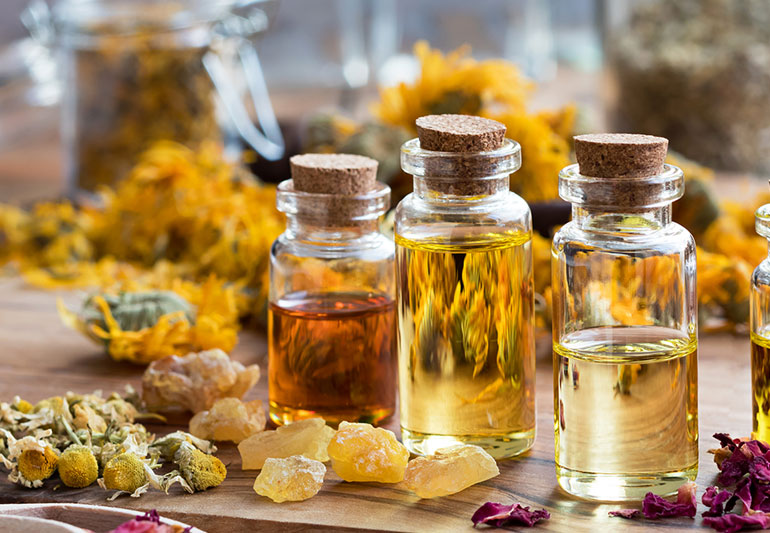
These oils have been used for thousands of years in many cultures, including American Indians, Egyptians, Greeks, Romans, and Chinese. They are typically extracted from seeds, stems, flowers, bark, roots, or other plant material; some may be cold-pressed (such as citrus oils), while others are steam distilled (such as jasmine). However, the term “essential oil” is often used interchangeably with “aromatherapy oil,” all essential oils are not necessarily aromatherapy quality.
These oils are highly concentrated liquids containing volatile aroma compounds from plants. While creating your essential oil blend using two or more pure these oils is possible, the most common type available for consumer purchase is an “absolute.” This is not a single oil but a mixture of natural plant constituents (typically the oily resin and waxes leftover after steam distilling plant material). When purchasing absolutes, you may prefer to look for ones that have been hydro-distilled; this process uses lower temperatures, which keeps the chemical composition closer to that of the original plant. It is also advisable to check with companies before buying any absolutes if you happen to be pregnant (some absolutes may contain traces of methyl salicylate, which is not recommended for use during pregnancy).

When purchasing these oils, it’s necessary to look into the purity of the product being sold. Many different factors can influence the quality of essential oil. Where was the plant grown? What part of the plant was used? How was it harvested? What shapes and sizes are available on the market today? The following list highlights just a few factors that can contribute to an essential oil’s quality:
- Country of origin • Climate conditions (sunlight, rainfall)
- Season harvested • Distillation method used (steam distilling vs. cold pressing)
- Part of plant harvested (roots, stems, flowers, etc.)
- Additional ingredients included in the oil blend
- Size and shape of bottle used for storage
It’s important to note that not all essential oils have been tested by an independent third party or a governing body. Hence, the purity and quality of any particular brand cannot be verified by an objective source. It is up to consumers to do their research on any company before purchasing from them. In addition, many companies will list Latin names instead of standard or trade names. There are several reasons why companies might choose to list a Latin name rather than a familiar name:
- Latin names are unique identifiers for plants
- They’re often shorter and more accessible to spell
- They can tell you more about the plant’s origins
- Latin names may vary from one country to another
- Latin names can be more specific than common names
For example, instead of listing the clove oil as “eugenol”, a company might list its Latin name as “eugeniacaryophyllata.” Regardless of whether or not it’s listed by trade or common name, all essential oils should also list their chemical composition.







